Alan Livingston: From Bozo to The Beatles with Sinatra Thrown in for Good Measure
Former record company executive Alan Livingston died today in Los Angeles at the age of 91. Livingston was the president of Capitol Records at the time the company obtained the exclusive U.S. distribution rights for recordings of The Beatles in late 1963. In a Capitol press release dated December 4, 1963, Livingston stated that "With their popularity in England and the promotion we're going to put behind them, I have every reason to believe The Beatles will be just as successful in the United States." Within weeks, his words proved to be true as Beatlemania exploded in America.
Former record company executive Alan Livingston died today in Los Angeles at the age of 91. Livingston was the president of Capitol Records at the time the company obtained the exclusive U.S. distribution rights for recordings of The Beatles in late 1963. In a Capitol press release dated December 4, 1963, Livingston stated that "With their popularity in England and the promotion we're going to put behind them, I have every reason to believe The Beatles will be just as successful in the United States." Within weeks, his words proved to be true as Beatlemania exploded in America.
 Capitol had previously declined to issue The Beatles records in the U.S. despite being an EMI subsidiary with a right-of-first-refusal for all recordings by EMI artists. Capitol's Dave Dexter was responsible for reviewing foreign discs for possible release by the company. With a background in jazz and R&B, Dexter was not particularly fond of rock 'n' roll. To Dexter, The Beatles were a bunch of long-haired kids with little or no talent. When the label had previously released records by successful British artists such as Cliff Richard, they failed to generate excitement in the States. So Livingston initially stood by Dexter's decision to pass on The Beatles despite pressure from EMI.
Capitol had previously declined to issue The Beatles records in the U.S. despite being an EMI subsidiary with a right-of-first-refusal for all recordings by EMI artists. Capitol's Dave Dexter was responsible for reviewing foreign discs for possible release by the company. With a background in jazz and R&B, Dexter was not particularly fond of rock 'n' roll. To Dexter, The Beatles were a bunch of long-haired kids with little or no talent. When the label had previously released records by successful British artists such as Cliff Richard, they failed to generate excitement in the States. So Livingston initially stood by Dexter's decision to pass on The Beatles despite pressure from EMI.Frustrated by Capitol's refusal to release the group's records in America, Beatles manager Brain Epstein called Livingston and asked him to listen to the band's records. After hearing I Want To Hold Your Hand, Livingston was convinced that the group could sell records in America and agreed to issue the song. He also gave in to Epstein's demand that Capitol spend $40,000 promoting the single, which was unheard of at the time.

Capitol put together a promotional blitz for the group, known as the Beatles Campaign. It was the first time that a record company marketed a recording artist directly to record buyers. Capitol prepared stickers proclaiming "The Beatles Are Coming!" and pin-on buttons with the slogan "Be A BEATLE Booster," as well as an entire tabloid titled National Record News, which was devoted entirely to The Beatles. These items, along with Beatle wigs, were distributed to throughout the country. After a Washington, D.C. radio station received favorable response when it played the British pressing of I Want To Hold Your Hand, Capitol pushed up the single's release date from mid-January, 1964, to December 26, 1963. The record quickly worked its way to the top of the charts. By the time The Beatles landed in New York on February 7, 1964, they were dominating the airwaves and record charts. Their appearance on The Ed Sullivan Show two days later was watched by a then-record television audience of over 73 million.

Capitol reconfigured The Beatles albums, often adding songs that had been released as singles. This was done under the belief that hit singles made hit albums. While the company later was criticized for this, it was common practice in the music industry at the time to tailor an album for a particular market. And the strategy worked. The company's first Beatles album, Meet The Beatles!, sold 3,650,000 units within two months of its release. This was at a time when rock albums rarely sold over 200,000 copies. The record industry took notice that people would buy well-crafted rock albums. As a consequence, the album went on to replace the single as the dominant music format.
Although people in the record industry kept expecting The Beatles to peak and fall from favor, Livingston recognized the group's staying power and made sure they remained with Capitol. In his forward to the book The Beatles' Story on Capitol Records, Livingston explained "I knew the songwriting talents of John and Paul would keep them successful."
 Livingston began his career in the music business by leading his own orchestra while a student at the University of Pennsylvania. He went on to receive a B.S. degree from the Wharton School of Finance and Commerce. After serving as a lieutenant in the Army, he worked in public relations for Calvert's Whiskey.
Livingston began his career in the music business by leading his own orchestra while a student at the University of Pennsylvania. He went on to receive a B.S. degree from the Wharton School of Finance and Commerce. After serving as a lieutenant in the Army, he worked in public relations for Calvert's Whiskey.Livingston started working for Capitol Records in 1946. His initial assignment was to develop a children's records catalog. Livingston's first creation was Bozo the Clown, a character that would late become a television star and part of American culture. Bozo made his debut in September of 1946 on the Capitol album Bozo At The Circus, which was written and produced by Livingston. The record quickly became a million seller and was followed by other successful Bozo albums.
Under Livingston's direction, Capitol dominated the children's record market, which was an important part of the record industry at the time. When the Best-Selling Children's Records chart made its debut in the June 12, 1948, issue of Billboard, eight of the top ten albums were Capitol releases, including Bozo At The Circus (#1) and Bozo And His Rocket Ship (#7), as well as two other Livingston creations, Sparky's Magic Piano (#6) and Rusty in Orchestraville (#9). During 1949, there were many weeks when Bozo had four records in the top ten.
Livingston wrote and produced many of Capitol's children's records, including albums featuring Woody Woodpecker, Walt Disney properties and Warner Brothers cartoon characters such as Bugs Bunny. Livingston created the "Record-Reader," a book and album combination that would be copied many times over. He co-wrote the pop novelty tune I Taut I Saw A Puddy Cat, which was a number nine hit by Mel Blanc in 1951.
As vice-president of Capitol, Livingston signed Frank Sinatra to the label at a time when Sinatra's music career was at an all-time low, having been dropped by Columbia Records. Livingston wanted Sinatra to work with arranger Nelson Riddle; however, Sinatra was reluctant to do so out of loyalty to Axel Stordahl, with whom he had worked with for most of his career. When Sinatra's first Capitol recording arranged by Stordahl didn't have the magic the label was looking for, Sinatra reluctantly agreed to try a session with Nelson Riddle on April 30, 1953. The impact was immediate, producing the classic I've Got The World On A String. A subsequent Nelson-arranged single, Young-At-Heart, became the defining moment in Sinatra's comeback, pealing at number two during its 22-week run on the charts in spring, 1954.
After ten years with Capitol, Livingston left the music business to work for the National Broadcasting Company in 1956, While at NBC, he produced the pilot for the western series Bonanza, which became the television's most successful series up to that time.
In 1961, Capitol persuaded Livingston to return to Capitol as its president. During his tenure, the company signed The Beach Boys, The Beatles, The Band and many other successful rock artists.
He left Capitol in 1968 to establish his own production company, Mediarts, Inc, which was involved with film, records and music publishing. Two of the company's successful projects were the film Downhill Racer, starring Gene Hackman and Robert Redford, and Don McLean's song American Pie, which became a number one hit in 1972. Although he was not directly involved in the production of Star Wars, Livingston was senior vice-president and president of the Entertainment Group of 20th Century Fox during the time the film was developed.
Livingston is survived by his wife, former actress Nancy Olson, and one son, one daughter, two step-daughters, three grandchildren and three step-grandchildren.
© Free Rare Mp3 Music Downloads









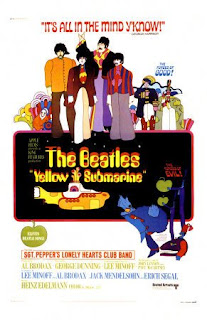
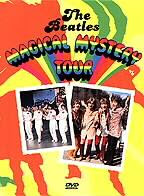







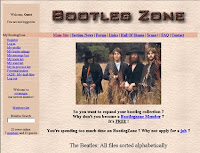
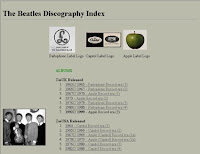









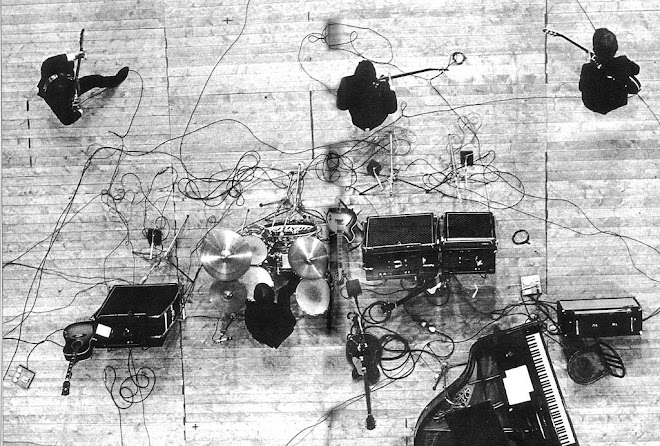
No comments:
Post a Comment